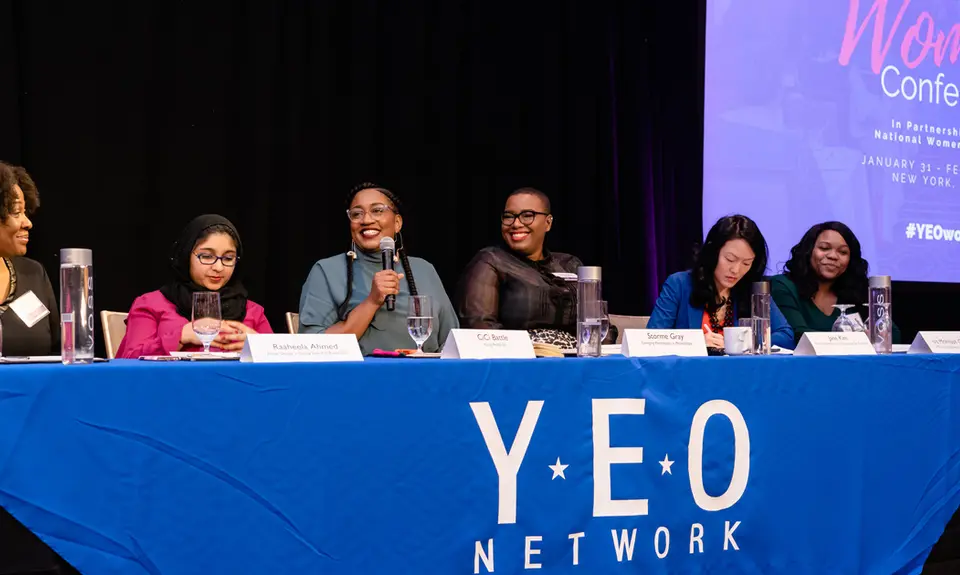Long before Kimberlé Crenshaw popularized the term “intersectionality” in 1989, the social justice movement has struggled to recognize the multiple layers of oppression faced by women of color. That's why discussions like the one that took place on Saturday February 2, 2019, at the Young Elected Officials Network Women’s Conference are so critical.
The panelists, including Former Supervisor for the City and County of San Francisco Jane Kim, Director of PFAW Foundation's Young People For CiCi Battle, Prince George’s County Board of Education Member Raaheela Ahmed, Director of Programs at Emerging Practitioners in Philanthropy Storme Gray, and New York Assemblywoman Latrice Walker, spoke about the importance of telling stories to uplift women of color and bring awareness to racial and gender justice in our communities.
Key to making sure those stories are told is making sure women of color are at the table. "Community starts with us," said Battle. That means addressing the barriers to participation, such as transportation or college degree requirements, while being intentional about inclusion. As an elected official in California, Kim hired many women of color to work on her staff. “We need them at every level of government,” Kim said. With so few women of color in leadership pipelines, particularly in the public sector, every public official should be purposeful about their diversity and hiring practices.
Raaheela Ahmed started the panel by recalling the many times that her father lost every election he ran for and the importance her family has placed in running for public office. She addressed the problematic question of what it means to be a "good woman," while explaining that she has worked to meet the elusive definition through advocacy for better pay for teachers. We have to challenge the different ways that culture has imprisoned us, she emphasized, in order to come to an understanding of racial justice.
Battle emphasized the importance of knowing the difference between race and ethnicity because “for this country, race was a concept that was built to maintain and sustain power.” In order to fully address racial justice, she said that it is critical to unpack anti-blackness and how that shows up in our work for change. Through the YP4 program, Battle works with young people to help them address change in their communities through a racial and gender justice lens.
Just because creating an inclusive environment is critical to advancing social justice, doesn't mean it will come easily. People must become comfortable with saying things that can make you uncomfortable, says Gray. It means being self-aware while challenging the notion that you have to keep people around you comfortable too. Gray created a program for young people of color in Washington, D.C. to work with policymakers to advance issues that they care about. She stated, “If you’re doing stuff for people instead of with them, you’re already at a loss.”
Walker spoke about criminal justice reform and bail reform, as well as the importance of having after-school programs to end the school to prison pipeline. Supporting women of color also means supporting youth, so that they can have a future in public office. Racial justice cannot be understood without the idea of representation in our communities. We must continue to shed light on the inequalities that we see in our everyday lives in order to understand and talk about racial justice.
